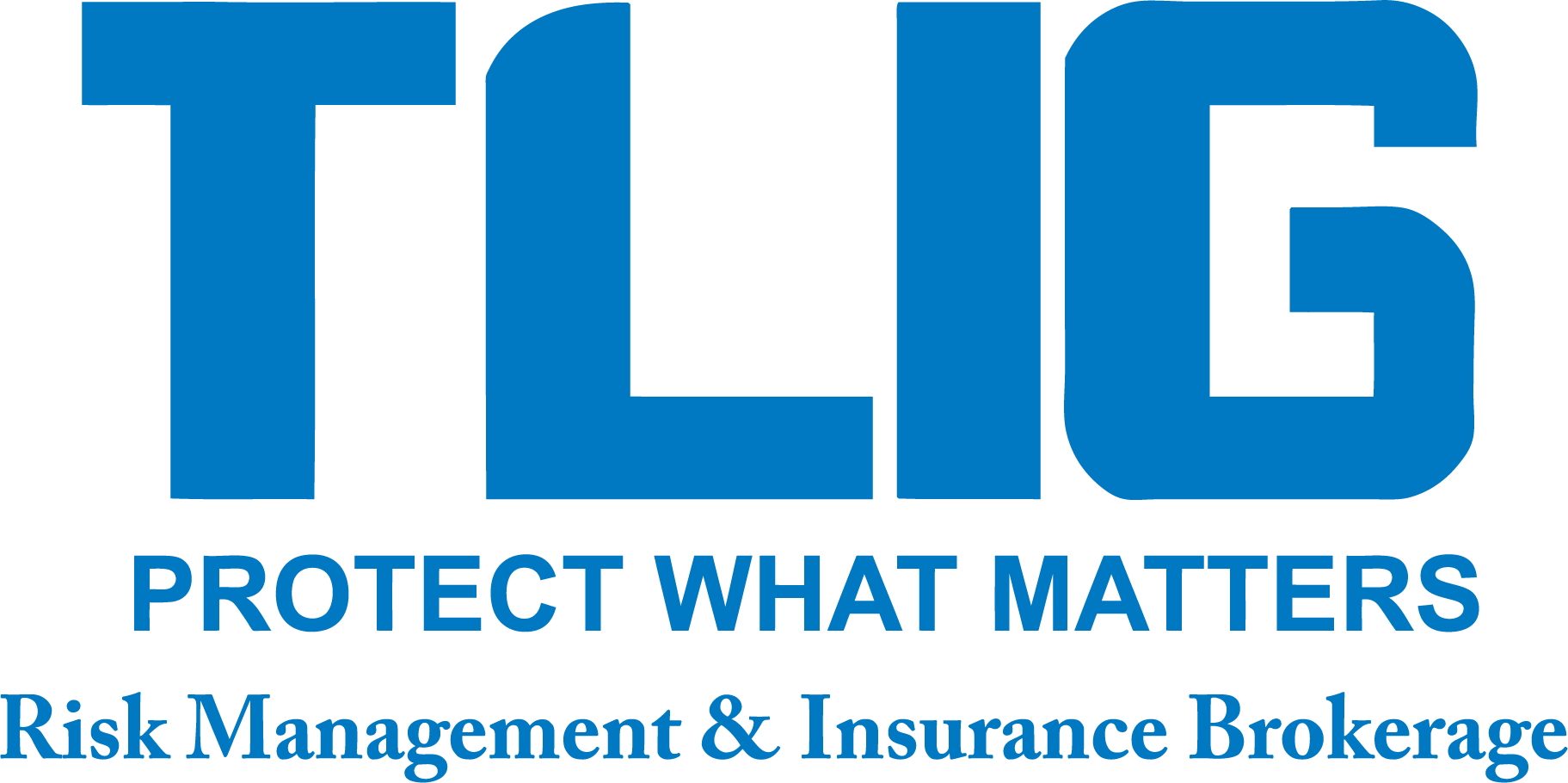You know your business better than anyone. However, most insurance agents and agencies don’t have a formal process established for getting to know your business and understanding your operations. TLIG understands that with better information come better decisions. Whether it’s auto insurance, homeowners insurance or business insurance our agency is committed to asking the right questions and providing you with meaningful answers. TLIG is redefining the phrase Insurance Agent.
Our Approach…No Surprises
Do you really know what your policies are covering? We do. TLIG goes beyond “apples-to-apples” comparisons used by many other insurance agents and agencies. We conduct a thorough review of your existing insurance policies to make sure that your insurance program aligns with your business operations and risk exposures. TLIG believes that transparency and open communication is the foundation to better understanding your business.
Does Volunteering Your Time Mean Volunteering Your Insurance?
Millions of Americans donate time—their most valuable asset—to serve as a volunteer board member on non-profits, booster clubs, churches, PTAs and civic organizations, just to name a few. The decisions these folks make can have a dramatic impact on their respective organization—and not always for the better. If a volunteer endeavor goes bad, would a volunteer board member have coverage against a lawsuit under his or her homeowner’s policy?
Homeowners’ Insurance
The last thing volunteers want to consider is what would happen if their favored organization file suit against them as a result of their efforts. But it happens, and not infrequently. This does happen, especially when volunteers make decisions that directly influence the finances of an organization. Often, the only insurance these volunteers have to back their efforts is a homeowner’s policy. Unfortunately, this policy may be of little assistance.
The reason homeowners’ policies do not usually cover liability stemming from actions as a volunteer is the nature of the claim. The policy is designed to cover claims of “bodily injury,” such as someone slipping on cracked pavement in your driveway; and/or “property damage,” such as accidentally setting your neighbor’s house ablaze when burning some brush on a windy day.
Claims against board members do not usually involve bodily injury or property damage. Rather, they involve bad decision-making that results in financial loss to the organization, such as the decision to invest in an IT system that turns out to be a debacle, costing the organization tremendous time and money.
There is another problem. Homeowners policies do not cover “professional services.” This is important to note, because board members are often asked to serve in a capacity consistent with their profession. For example, a church member who is a CPA may be asked to serve on the church’s board as finance chairman. Even though he is not paid for his services, the “professional services” exclusion under his homeowner’s policy would still apply.
In addition to the above, homeowners policies do not cover claims of personal injury unless this coverage is specifically added. Personal injury insurance is added to the homeowner’s policy to cover claims such as libel, slander, wrongful eviction, and false advertising.
What to Do
Events causing claims are unpredictable. While the reasons shown above prove it’s unlikely, not all claims against volunteer board members are excluded by a homeowners policy. Decisions to purchase personal injury coverage and a personal umbrella policy will increase your ability to find coverage for a suit against you.
The best method for insuring the actions of board members is for the organization to purchase a directors and officers (D&O) liability policy. These policies are relatively inexpensive for most non-profits. Before volunteering, request information on the organization’s D&O policy. The absence of this insurance leaves you at risk of having no personal insurance to defend a suit brought against you by the organization and should influence your decision to serve.
TLIG is a local Trusted Choice® agency that represents multiple insurance companies, so it offers you a variety of personal and business coverage choices and can customize an insurance plan to meet your specialized needs.
Visit us online at www.tligins.com or call us at (434) 582-1444.
Safety Makes Your Summer Party Memorable—In the Right Way
The entertainment value in a summertime get-together can be in the camaraderie and storytelling. But don’t let your next backyard barbecue turn into a tale of woe, to be retold years from now.
One party hostess recalled a disastrous event that involved hot oil, alcohol, a paper tablecloth and fireworks:
“The oil to fry the turkey was too hot and too full (yes, we fry our turkeys in Texas). Maybe it had to do with the over-served [read: one too many alcoholic beverages] cook. But once the turkey went in, the oil bubbled over, caught the paper tablecloth on fire, and lit the grass on fire.”
The grass fire then ignited a pile of fireworks, which were supposed to be on the porch. This in turn “led to one huge fireball, screaming crying children who will probably never recover from the panic that was set throughout, which then led to roof catching on fire.”
The damage tally was: one home partially destroyed, several cars damaged by smoke, a missing dog, $2,500 worth of poorly timed fireworks and three acres of burned grass. The lessons learned reported the wiser hostess: “We now monitor everyone’s booze intake, park cars far away, and only have one person know where the fireworks are. And I now cook the turkey with fire extinguishers nearby.”
Summer is truly party time in America. But homeowners should be aware of the risks associated with these get-togethers. Before reviewing safety tips, let’s look at three common risks for which a homeowner might need insurance coverage:
Liquor liability: Summer parties can be a breeding ground for drinking-and-driving accidents. Most homeowners know that they bear some responsibility if a guest becomes impaired after consumer alcoholic drinks at the homeowner’s house, and then causes a car accident. If the party-giver is sued, however, his/her homeowners and automobile insurance policies may not provide liability coverage. (Keep in mind that the legal defense against a claim is another significant expense for anyone who is sued in such a circumstance.)
Changes to homeowners insurance standard contracts in 2000 may limit the coverage available under a homeowners policy. Homeowners might be well served to check their homeowners and auto insurance policies (contacting their agent, if necessary) to determine what protection they may have.
Personal accidents on the homeowner’s property: A homeowners policy and an excess liability policy (dubbed an “umbrella” policy) provide broad protection for accidents on the party host’s property. For instance, if a guest tumbles down the steps of an outdoor deck or a child is burned by the outdoor grill, the homeowners policy would pay medical costs for the guest (and, should a lawsuit follow, likely would pay the costs of defending against the lawsuit and damages awarded in the case).
No one, of course, wants to see such events occur, but accidents do happen. Homeowners coverage is designed to “make whole” a homeowner who is facing a liability claim due to an accident on his or her property.
Property damage liability: When guests drive to your party and park their cars at your home, the homeowner assumes risk. The possibilities of property damage range from a simple dent from a stray baseball, to a young driver releasing the parking brake and rolling the car into a tree, to an impaired driver going for a joy ride and damaging the car. A different example of property damage is the theft of a guest’s purse/wallet or valuable articles from the party-giver’s property.
Homeowners coverage pays for damage to another person’s property, if the homeowner is held liable. A homeowner’s negligence and omissions (i.e., failing to take steps that might have prevented an incident) are reasons that he or she can be found liable for damage to another person’s property.
To prevent accidents, consider some sensible safety precautions:
Grilling
Some 5,000 people are injured by charcoal, wood-burning and propane grill fires each year, according to the U.S. Fire Administration of the Federal Emergency Management Administration. Good safety practices include:
- Before using a propane gas grill, check the connection between the tank and the fuel line. Make sure the Venturi tubes (where the air and gas mix) are not blocked, and check hoses for cracks or damage.
- Never use a propane barbecue grill on a balcony, terrace or roof. And never grill/barbecue in enclosed areas, as deadly carbon monoxide can be produced.
- Keep a fire extinguisher or a source of water (a garden hose or four-gallon pail of water) near an outdoor grill or barbecue.
- While barbecuing, don’t wear loose clothing. Use long-handled barbecue tools and/or mitts that are flame resistant.
- Don’t squirt flammable liquids onto an open flame.
- Don’t leave a grill unattended.
- Keep matches and lighters away from children. Supervise children around outdoor grills, which are objects of curiosity.
- If using a charcoal or wood fire, dispose of hot coals properly by soaking them with water, then stirring to ensure that fire is extinguished. Never place them in plastic, paper or wooden containers.
- Keep alcoholic beverages away from the grill since they are flammable.
Drinking
Liquids containing alcohol cause the human body to lose more fluid, say health educators. So summertime drinking in the sun or heat can present hazards to health, including impaired judgment, balance and coordination. Consider these safety tips if serving:
- Use designated drivers.
- Make non-alcoholic beverages as available as alcoholic drinks.
- Stop serving alcohol before the party ends.
- If children are attending the event, remember that alcohol may seem more available to them at a party.
Dining outdoors
Food-borne illnesses favor the hot conditions found at outdoor events where food is not refrigerated or may be undercooked. The U.S. Department of Agriculture offers food safety tips:
- Cook foods thoroughly to safe minimum internal temperatures.
- Keep hot foods hot and cold foods cold. Hot foods should be heated and maintained at 140 °F or warmer with chafing dishes, slow cookers, and warming trays. Cold foods should be held at 40 °F or colder. Maintain cold by placing food dishes in bowls of ice or in a cooler.
- Live by the “two-hour rule”: Foods should not sit at room temperature for more than two hours.
TLIG is a local Trusted Choice® agency that represents multiple insurance companies, so it offers you a variety of personal and business coverage choices and can customize an insurance plan to meet your specialized needs.
Visit us online at www.tligins.com or call us at (434) 582-1444.
When You Travel, Do You Need Special Insurance?
Recent months have brought travel risks to the forefront of consumers’ minds: the economic downturn, safety risks overseas due to political unrest, and a potential new strain of influenza that has emerged from Mexico.
There are two broad types of travel-related coverage for those leaving the United States:
- Travel insurance covers the loss of the prepaid travel costs of a trip should it be canceled, interrupted, or postponed. It also can reimburse unexpected expenses incurred due to a sudden change in travel plans due to illness or other causes.
- Specialty medical coverage protects against personal insurance risks when someone is outside the United States.
Travelers can buy travel coverage in conjunction with their travel tour, hotel bookings or flight reservations. It’s also available from providers that specialize in the international insurance market. For example, Continental, a major international airline, offers trip cancellation and interruption coverage through its reservations Web site.
The coverage reimburses the traveler for “prepaid, unused, non-refundable travel expenses should your trip be cancelled or interrupted due to any covered reason.” Such reasons include: inclement weather, an unexpected illness, death of a traveler, and travel delays.
The Insurance Information Network of California notes that trip insurance providers sometimes require a physician’s verification if a trip must be canceled before it occurs. It advises buyers to check whether the travel coverage is “cancel for any reason protection,” or more limited coverage.
Trip interruption insurance is another variation. It can provide reimbursement for extra food and lodging costs if a traveler becomes ill during the course of a trip. Some plans cover medical costs. Trip delay insurance covers expenses a traveler incurs in resuming a planned trip or returning home after being quarantined in another country. Often these various coverages are bundled and sold together in a package.
Short-term medical insurance may be appropriate for the millions of U.S. residents who travel outside the U.S. every year. Those who travel outside of America may be going beyond the boundaries of their medical insurance without knowing it, according to Clements International, a provider of international insurance policies.
The unpredictable nature of the spreading of swine flu that began in April 2009 has heightened awareness of health risks while traveling around the world. Travelers may wish to consider short-term medical insurance if they’re traveling outside of the United States for an extended vacation or business trip.
To determine whether it’s necessary, it’s advisable to check if a domestic health insurance policy covers out-of-country travel. If not, short-term medical insurance provides coverage for illnesses or medical evacuation that occurs while traveling outside of the United States.
International travelers face the same insurance risks (and sometimes additional risks) while outside the country that they do while stateside. Life insurance issued in the U.S. may not be available on the same basis while a person is traveling for an extended period as when not traveling. It’s prudent to check on the validity of life insurance coverage as part of the travel-planning process.
Check with your insurance agent about what type of insurance protection might be needed if taking an overseas trip.
TLIG is a local Trusted Choice® agency that represents multiple insurance companies, so it offers you a variety of personal and business coverage choices and can customize an insurance plan to meet your specialized needs.
Visit us online at www.tligins.com or call them at (434) 582-1444.



